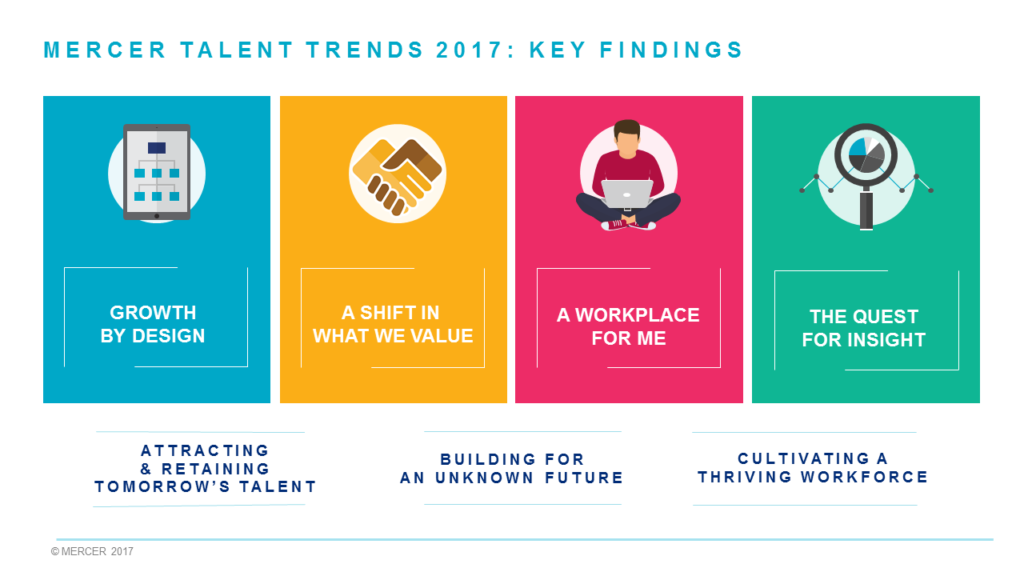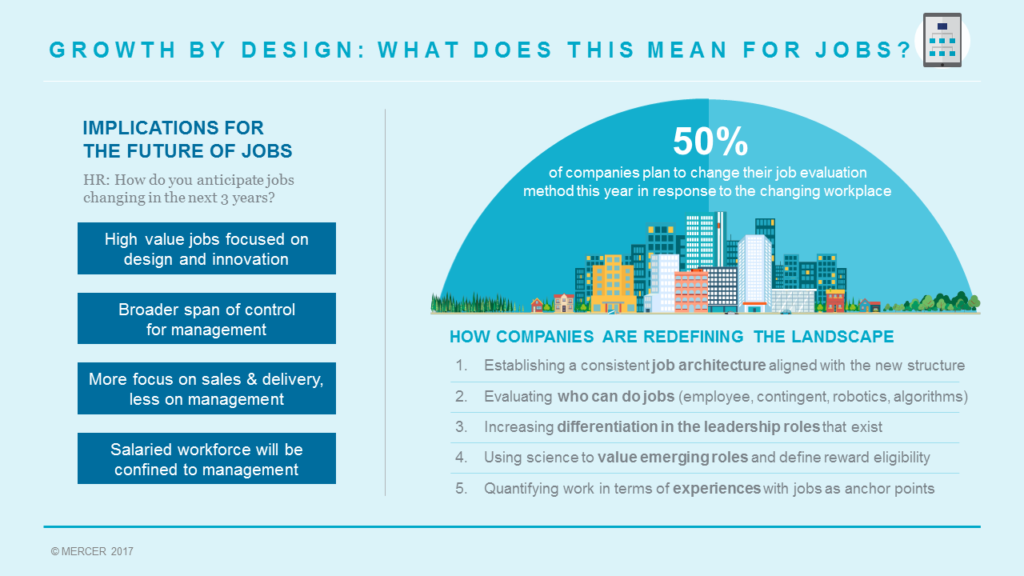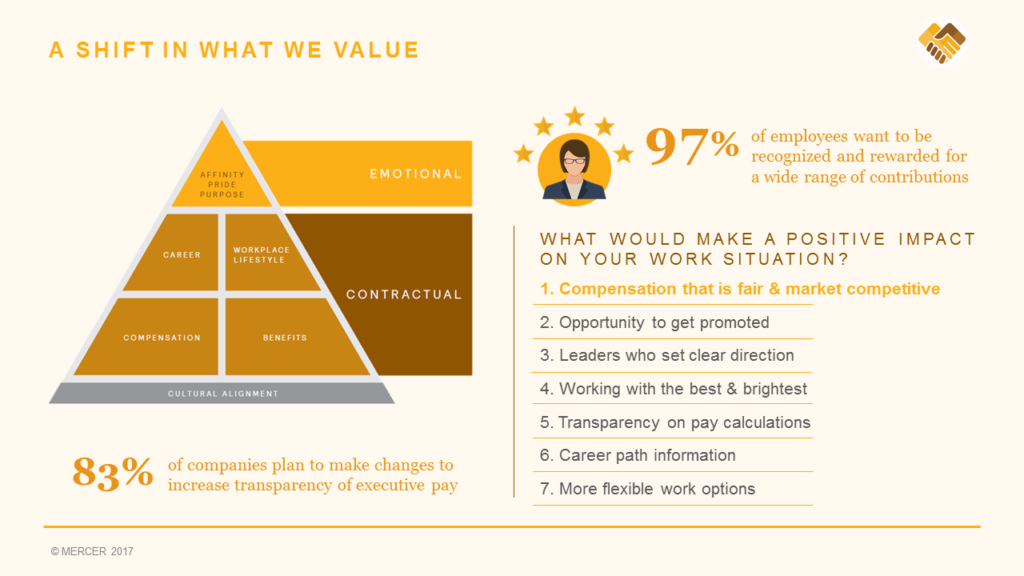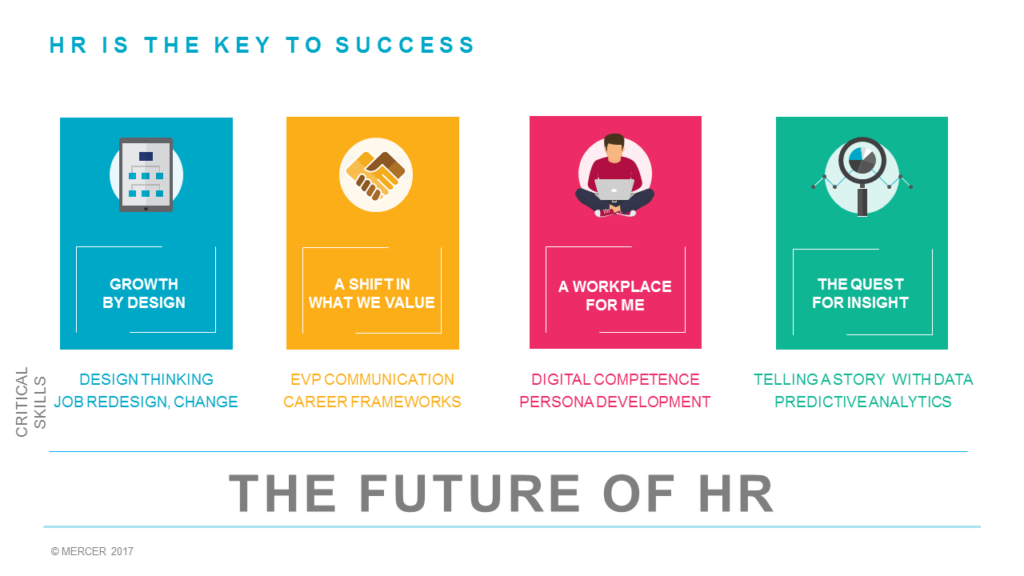Preparing Employers in Emerging Markets for a Digital Future

This photo taken on November 10, 2016 shows employees of an information technology company exercising together in their office after lunchtime in Tokyo. A growing number of Japanese companies are encouraging exercise breaks, in the hope of keeping employees limber and productive for longer, as the nation contends with a shrinking labor pool and one of the world's fastest aging populations.
Photo: Toru Yamanaka/AFP/Getty Images
Amid a rising wave of anti-globalization rhetoric, emerging markets across Asia, Africa, the Middle East and Latin America provide hope for resurgence in global trade. Chinese President Xi Jinping’s widely acclaimed speech at the World Economic Forum in Davos earlier this year presented a new model of growth to the world, one that is equitable and inclusive. Macroeconomic headwinds notwithstanding, emerging markets offer unprecedented opportunity, not only to global multinationals but to an increasing number of homegrown regional companies that have set their sights on going global.
We find a pattern in the talent trends across this diverse and complex geographical spread. According to Mercer’s latest Global Talent Trends Study, which covers more than 37 countries, comprising both developed and emerging markets, and 20 different industries—one of the key findings across all countries is how technology-driven disruption is reshaping value chains, making people and information more accessible, and redefining how work gets done. At the same time, the changing demographic profile of employees, an aging workforce in some large markets coupled with a young educated workforce in others, is challenging the traditional model of what it means to “go to work.”
Trends to Watch
The report identifies four key themes driving global workforces. An overwhelming number (93 percent) of business executives surveyed plan to make an organization design or structural change in their company within the next two years. Organizations are transforming structures and jobs to increase efficiency, agility, and customer intimacy. Ensuring that the people agenda is not lost amid the drive for change is critical to sustainable growth.
We are also seeing a shift in what we value, which is calling for a new employee rewards paradigm. Fair and competitive pay along with opportunities for promotion are top priorities for employees this year. However, it’s not just about financial results or activity metrics. Almost all (97 percent) employees want to be recognized and rewarded for the wide range of contributions they make every day.
Personalization of the employee experience is another strong theme. People expect their employer to “make work, work” for their individual circumstances. Companies are starting to respond by taking a “whole person” approach and increasing the flexible work options available to their workforce; 63 percent already have a formal flexibility policy in place.
Despite leaps in technology and the capturing of big data, predictive analytics continues to be elusive—with most organizations lacking the competence needed more so than the technology.
Emerging Markets Stick Together
The results from the study across emerging markets are surprisingly similar, despite the geographic dispersion across Asia, the Middle East, and Africa (AMEA), and Latin America. This reinforces the premise that companies in emerging markets—both homegrown and multinational—are faced with similar challenges when compared with those in Europe, North America and Oceania.
Organizations in emerging markets historically grew off the back of matrixed structures in an effort to not overlay profitability and revenue growth compulsions on new geographies they were expanding into. They now recognize the need to further empower their local management teams and respond to changes faster as opposed to having distant headquarters slowly making decisions.
Decentralizing authority (the number one priority in Brazil) is fairly similar to the top organizational design change planned by companies in AMEA, which is forming self-driven, holacratic work teams. Generally, there is a strong need for a flatter and nimbler organizational design to make companies more responsive and ready for the sweeping digital disruption. Sixty-seven percent of the companies in Singapore are set to adopt a new approach on how to quantify contributions of different jobs or roles to the business.
A more scientific approach to evaluating job worth, especially at a time when the scope of jobs is undergoing sea change will be crucial. Companies across growth markets believe these changes are important to drive greater efficiency (over 50 percent) and increase customer intimacy (over 30 percent) by potentially outsourcing certain functions and roles to focus on making core businesses more agile. Roles in sales, delivery, innovation and design will grow faster than conventional management jobs as organizations pivot even more around the customer.
In terms of implications for the future of jobs, HR’s view across the emerging markets region is consistent with the rest of the world in that an increasing number of high-value jobs will focus on design and innovation. However, there is one key difference. HR leaders in emerging markets believe that an increasing number of jobs will be done virtually (over 40 percent). Hong Kong is the only market where HR leaders are much less concerned about talent scarcity, while Japan is the only one where “aging workforce” gets highlighted as a key concern for both business and HR leaders. A rising number of companies will shift support functions, including HR operations, to shared services as a result.
Getting Personal
This year, pay competitiveness, benefits and job security will be even more important factors for people when deciding whether to stay and where to go. However, employees care more about opportunities to get promoted when evaluating current and future employers (over 50 percent). This illustrates the importance that the relatively younger workforce, based in emerging markets, places on growth opportunities compared to base pay. Employers, therefore, have to focus on the overall individual value proposition and compelling career paths as an integral part of those propositions to be able to attract and retain the best talent.
Despite the media attention on employers who have done away with performance ratings, companies in emerging markets prefer retaining performance ratings. However, a large majority (over 80 percent) admit to having changed their performance management systems to improve effectiveness as well as the employee-manager experience. Singapore is an outlier, as 42 percent of the respondents say that they eliminated forced rankings last year.
Employee experiences are getting personal. This means companies are moving beyond segmented pay and benefits to a more nuanced value proposition—one that responds to individual interests and is brought alive through technology. One trend that is on the rise across industries, generations, and cultures is flexible working. A staggering 68 percent of employees in Latin America are seeking more flexible work arrangements. Therefore, getting serious around a culture to support flexible working should be a top focus.
Employees in Asia-Pacific expect the workplace to be more focused on health and well-being, while those in Latin America believe the workplace will become increasingly team-based in the near future. Personalization of benefits will therefore become a big differentiator for employers in emerging markets.
Time to Upskill
With rising wage inflation across emerging markets amid falling global trade and productivity, the labor cost arbitrage of the outsourcing boom years is passé. Different workforce demographics require a complete shift in talent management and a focus on the employee experience. Upskilling the workforce for the digital future and providing compelling career paths are crucial to a sustainable employee value proposition today. Companies are realizing that learning from examples of progressive talent practices, for instance in Latin America, and applying those learnings in Asia can create sustainable competitive advantages. The key will be the speed at which this is realized in this fast-paced environment.
The Human Resource function will need to play a pivotal role as a change agent, preparing organizations from within for the transformation by fostering a culture of innovation, of learning and of agility. And HR professionals themselves will need to lead by example at a time when continuous learning is much needed across organizations.
A version of this piece appeared on HQ Asia.






